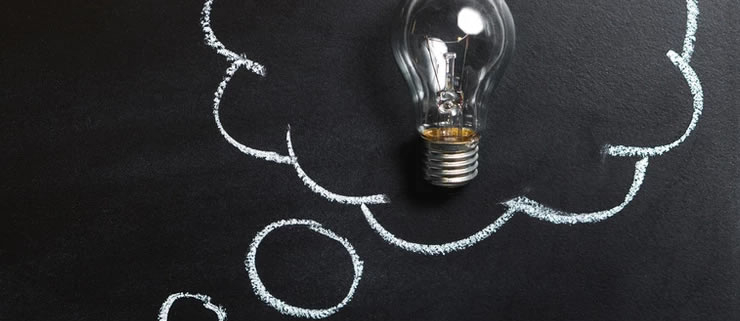Two Questions You Must Answer In Order to Improve Your Communication (Communication, Part 4/5)
What’s your goal?

This is an important question, and one that typically comes up early in therapy. I’m a big fan of defining goals, early and often.
My most successful clients typically answer this question with something to the effect of: “I need to learn how to…” or “I want to be better at…” They go on to spell out a goal that involves them making some kind of change.
My most frustrated clients tend to answer the question more like this: “I need for [my spouse, child, mother-in-law….] to stop [doing what I don’t want them to] and start [doing what I want them to]”.
The frustration comes in when I break the news to them that I can’t help them reach that goal. Unless they recognize that they are the only ones they have the power to change, they typically get mad at me and end up dropping out.
Most of my clients are interested — at some level — in improving their communication. Because, let’s face it — most of us are in therapy because our relationships aren’t working in the way we would like them to.
When we are having communication problems, it is natural to point the finger at the other person — if we could just get that person to be more rational, reasonable, understanding, kind — then our communication problems will be solved.
But unfortunately, this just isn’t true.
I hate to be black and white here, but if you are having communication problems in your life, then you are the one that needs to change.
Sometimes that change involves setting firmer boundaries — ending conversations before they become toxic, or learning to recognize unhealthy relationships. Sometimes it involves improving a skill, learning to be less defensive or being more clear with others about what we need.
Sometimes we have to add new tools and skills to our repertoire, sometimes we have to improve the ones we already have.
One of the best ways to get better at communication is to look back at the past. I know that doesn’t sound right — I mean, aren’t we always supposed to be looking forward?
Generally, yes. But looking back at our past interactions can be incredibly enlightening and help us dramatically improve our communication skills.
Years ago, I was working very hard at improving my own communication. I had one relationship, in particular, where conversations always seemed to end in some sort of misunderstanding and conflict. I’d been thinking about this a lot, and working on how I could do things differently. One afternoon, as this person and I sat down to talk, I brought my best skills and laid them out on the table.
It was a disaster.
The conversation ended much like others had, and as the person walked away from me in frustration, I started down the road of beating myself up. “There you go again. Why do you always have to let things get out of hand?”

But since I had been doing a lot of work, I was able to regroup. “The important thing is that you’re trying,” I told myself. This little bit of validation settled me down. This enabled me to ask another critical question: “Is there anything you could have done differently?”
And of course, I was able to identify several things that I could have done to handle the interaction more skillfully.
I vowed to try those things the next conversation, and sure enough it went a little better. With a lot of effort on both our parts, we have been able to vastly improve our relationship. Sure, we both contributed to the communication problem, and both of us had to change the way we did things. But more often than not — especially in relationships where two people truly care for one another — it just takes one person to get the ball rolling on that change. When we communicate more effectively, it inevitably influences the other person. They have no choice but to respond.
(Side note: sometimes the other person will respond negatively, even becoming more destructive and unhealthy. When this happens, we often have to step away from the relationship. Sometimes temporarily, sometimes permanently. You can tell how emotionally healthy a person is by the way they respond to appropriate boundaries.)
To recap–in order to communicate more effectively, you must learn to ask yourself two critical questions:
- What’s my goal? If your goal is focused on you, your contribution, your perception and your behavior, you will have an exponentially better chance of reaching that goal.
- What could I do differently? This takes courage, to look at our finest, and not-so-finest moments. We can, and should, learn from both.
Need more? If you are feeling stuck and need some outside help in managing your communication, emotions, or relationships, our team at Generations Counseling is available! Give us a call at 317-743-8202 or email at: [email protected] today.



